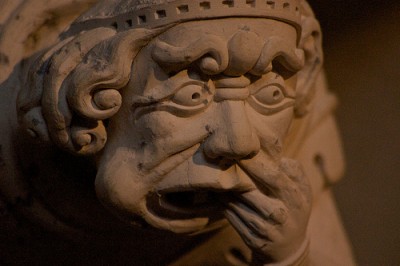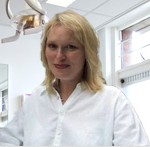Do You Know What to Do in a Dental Emergency?
Published:December 28th, 2012 Dental emergencies never seem to occur at convenient times, and frequently seem to happen during holidays or long weekends. So what can you do if something happens to you or someone you know?
Dental emergencies never seem to occur at convenient times, and frequently seem to happen during holidays or long weekends. So what can you do if something happens to you or someone you know?
Most dentists have an emergency number you can call, and will always do their very best to fit you in at short notice. Some even keep an appointment free for such emergencies. If you don’t have a dentist or can’t get in touch with your own dental surgery, then it’s worth trying the NHS emergency number for help and advice.
Common Dental Emergencies Include:
- Toothache has to be top of the list, and this can be extremely painful. The first thing to do is to find out if it’s being caused by anything trapped in between the teeth, and to rinse your mouth with warm water before flossing gently around the offending tooth to see if there is any food in between. It’s surprising as just a small piece of food can push the tooth out of alignment, causing pain and discomfort. You can try taking over-the-counter painkillers, but don’t be tempted to place aspirin or anything similar on the gum as it could burn the gum tissue. Make an appointment to see your dentist as soon as possible even if the toothache seems to go away. This is because there’s likely to be some underlying reason as to why it developed in the first place, and without treatment it’s quite likely it may come back.
- If you chip or break a tooth then rinse your mouth with warm water to remove all the remaining pieces. If there is any bleeding then apply a clean piece of gauze to the area and apply gentle pressure until it stops. Make an appointment to see your dentist as soon as possible.
- If you knock out a tooth then retrieve it by holding the crown and to rinse off any dirt. Don’t remove any pieces of tissue that may still be attached to the tooth root. If you feel able to, then try reinserting your tooth, but make sure it is facing the correct way. Otherwise the place it a small container with a little milk or water and take it to a dentist or your nearest outpatients as soon as possible. Reinsertion is much more successful if done within an hour of the tooth being knocked out.
- If your tooth is partially dislodged, the make an appointment to see a dentist as soon as possible.
- If a crown falls out then make sure you store it carefully and make an appointment to see your dentist as soon as you can. You can also buy temporary dental cement from the chemist, but you will still need an appointment to fix it properly. Whatever you do please don’t use superglue, as you’ll damage your tooth and the crown.
- Lost fillings can be replaced with a small piece of sugar free gum, purely as a temporary measure, or you can try using some over-the-counter temporary dental cement.
- If a bracket or band has become loose on a brace, then it can be temporarily re-attached with a small piece of orthodontic wax. You can also use a small piece of wax to cover up any wires that may be sticking out until you can get to the dentist.
- If you get something stuck in between your teeth then you can try dislodging it with dental floss, but if you can’t get it out easily then make an appointment to see your dentist. Don’t be tempted to use sharp instruments to try to get the object out as you may end up cutting your gum or damaging your tooth.
- Injuries to the soft tissues of the mouth should stop bleeding within fifteen minute or so. You can apply gentle pressure using a clean piece of gauze. If the bleeding fails to stop then go to your nearest outpatient department.
About the author
 Alison, is a UK born and educated dental professional with over 25 years experience.
Alison, is a UK born and educated dental professional with over 25 years experience.




Write a Comment of Do You Know What to Do in a Dental Emergency?